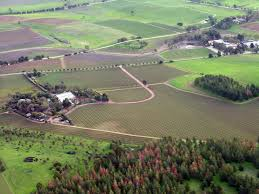Social cohesion, among ethnic groups of Iran, in urban and rural areas
Keywords:
social cohesion, social consensus, ethnic groups, ethnic groups (Azeris, Kurds, Baluchis, Turkmen, Taleshies, Arabs, Lors)Abstract
Due to the existence of subcultures, and ethnic and religious diversity of the characteristics of the community; This article is a follow - up study of factors amplifier (consensus -causing), and threatening (consensus debugger), social solidarity among peoples (Azeris, Kurds, Baluchis, Turkmen, Taleshies, Arabs, Lors), living in the land of Iran, show that the recognition of differences, and characteristics every nation in the world, as a basic principle, the intercultural relations between ethnic and even international, attention has been, and without regard to this important issue, social cohesion can not be achieved. Admittedly, the Iranian society is a multi-ethnic society, but social and ethnic boundaries, there are a lot of interference, and the local ethnic groups, around three symbols, language, religion and historical background, have sharing model. In addition, perceived discrimination and relative deprivation, and cynicism in society may have caused social and cultural alienation, and thus reduce social solidarity and social bonds are loosened. Therefore, the recognition of ethnic diversity, religious pluralism, and even, in this sense, so the Iranian society, strengthen the Iranian nation, from all ethnic groups, and ethnic groups, their know that the Iranian nation.References
Ganji, H., The Great Islamic Encyclopedia under the article Azerbaijan The Encyclopedia of Islam, under the article Baluch and Baluchistan Khosro Khosravi pen.
Ibn Khaldun., 2010. A., Introduction, Volume 1, translated Mohammadparvin Gonabadi, p 267.
Johnson, C., 1995. revolution, translated by H. Elias., P. 62.
Kohn, A.A., 2011. Theories of Revolution, translated by Alireza. Tayeb., P. 128.
Masoodi, A.H., 1986. Altanbih and Alashraf, translated by A. sustainable, Tehran, Scie. Cultur. Publ., Co., pp. 84 and 85.
Nasrabadi, A.B., 2005. social cohesion, and civic engagement (views, reinforcing agents, Threats and Solutions) » Hosoon., No. 6, pp. 169.
Baharvand, S.A., 2000. lors; sociological historical analysis, National Studies, Second Year, No. 6, p 24.
Chalabi, M., 2000. roundtable national solidarity and social consensus (2) Nat. Stud. Sec. Year., No. 2 and 3.
Eftekhari, A., 1998. natural capacity for security. J. Strategic Stud. Sec. edit.
Eslami, A., 2006. Ethnicity and its dimensions, in Iran, Polit. Sci. Quarterly., No. 34, pp. 207.
Field, H., 1964, the people of Iran," Abdullah translated grinder cries, Tehran, Ibn Sina, pp. 113 and 139.
Ghasemi, R., 1984. he and his ethnic affiliation, Tehran: Amir Kabir., (1984), pp. 4.
Hafeznia, M.R., 2002. Geopolitics of Iran, 1st Edition, Tehran: SAMT, pp. 164-173.
Hajiani, E., 2001. pattern ethnic politics in Iran ", Journal of Strategic Studies, No. 11, 12 pp. 125.
Hosseinzadeh, F., 1996. A confidant and national unity," the First Congress of Muharram and culture. Res. Anthropol., Cultur. Her. Organ. Iran.
Hosseinzadeh, F., 2001, Iranian ethnic groups, ie similarity of difference studies quarterly national two years, the number of point., 8, pp. 68-43.
Qeisari, N., 1998. ethnic Arabs, Iran and National Identity. J. Strat. Stud., the first issue, pp. 70.
Radjabov, A., 1992. paper attempts. J. Sound Talesh., No. 1, Baku, pp. 1 and 2.
Rafipoor, F., 2001. Dev. Confl. Tehran Comp. Publ., p 125.
Rezaii, A., et al., 2007. Major national and ethnic identity in Iranian Turkmens Nat. Stud., Year VI, No. 4, pp. 124.
Sadri, A., 2008. ethnic diversity, the national capital, and the inherent culture of Iran, prospects Iran - particularly in Kurdistan., p 26.
ShahOweisi, H., 2008. A brief article, the existence of Kurds, and Iran's role in the stability and independence of the landscape - especially in Kurdistan, p 44.
Turkmen W.G., 1969. A Study of Kinship in an Irons, Pastoral Soc. Ph. D. Dissertation, Univ. Mich.

Published
How to Cite
Issue
Section
Copyright (c) 2020 Masoud Safari Aliakbari, Bahram Soleimani

This work is licensed under a Creative Commons Attribution-NonCommercial-NoDerivatives 4.0 International License.



